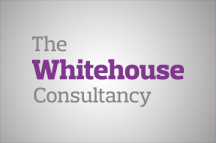Starting with 1st January 2019, for the first time in its twelve years of membership, Romania will take over the reins of the European Union by leading the Council of the European Union, a position which at the moment is exercised by the Austrian Government. Every six months, a new EU Member State takes charge of setting the EU’s agenda, chairs all the meetings in the Council and its preparatory bodies and represents the institution in relations with the other EU institutions, especially with the European Parliament working on reaching agreements on legislative files through trilogues, informal negotiation meetings and Conciliation Committee meetings.
The work programme of the Presidency is defined every 18 months by a triumvirate of countries. Romania together with Finland and Croatia are working together on defining their main working direction. While all the eyes are still on what will be achieved under the current Austrian presidency, let us discuss what the (near) future might bring.
Romania will definitely be challenged by this experience landing in the most painful moment of the Brexit process – the March 2019 deadline – and in the middle of the European elections vote taking place in May next year. Romania is also the host of the Sibiu EU Summit, the first EU Summit after Brexit which will also mark the culmination of the Juncker political legacy.
Leaving aside for a second the broader political context in which Romania will operate, it is worth mentioning that the country itself is not in the best shape. Sometimes (very often in fact) politics can go wrong. With three prime ministers in only two years of mandate due to internal fights in the Social Democratic Party (PSD) – the party that won the most votes in the 2016 legislative elections, the political crisis does not end here. Massive anti-corruption protests took place all over the country in August this year. The weakened judiciary due to the recent changes in the Criminal Code which decriminalizes several corruption offences such as abuse of office, a crime that earned PSD leader Liviu Dragnea (or the ‘man’ behind the Government) on 21st June, is only one of the few concerns that the EU has upon the fragile Romanian democracy.
The ‘dramatic’ political degradation in the country was discussed at the last plenary meeting in Strasbourg, with MEPs calling on the Romanian government to reverse course in the judicial reforms, the criminal procedure and criminal codes, to abstain from actions that would weaken the fight against corruption, and to remember the European values that guide the workings of the Union such as transparency, the rule of law, democracy and freedom.
Last Sunday Romanians were asked in a national referendum if they wanted to change the Constitution and specify that marriage can be only between ‘a man and a woman’. Despite the fact that the referendum was backed up by the ruling party, less than 30% of eligible voters participated in the plebiscite, thus it did not pass.
“Cohesion, a common European value“, is the slogan of the Presidency and the priorities are built around four pillars, with citizens and the policies that have a direct impact on them being at the core.
The first pillar – Converging Europe: growth, cohesion, competitiveness, connectivity, focuses on sustainable development, innovation and digitisation as well as connectivity and markets. Last year, Romania had one of the highest levels of economic growth in Europe, hence they want to promote this as an example of growth at the EU level and to get actively involved in the promotion of macro regions and their added-value for the Union.
The second pillar – A safer Europe, will focus on promoting security in Europe given the present challenges related to the migration process, protecting the borders and working on renewing the Visa Schengen System. As for Bulgaria, Romania has complied for several years already with the requirements of Schengen area, but it is still not a member of it. Therefore, the message the country has sent is clear: Romania is ready and all it needs is a ‘political’ decision from the EU (which according to some EU leaders will not come anytime soon, a supporting majority has not been found yet).
The third pillar – Europe, a stronger global actor, means continuing working at the global level and ensuring consistency of EU policy in its neighbourhood with a focus on the Eastern Partnership, specifically the Republic of Moldova, Romania’s sister country.
The fourth pillar – Europe of Common Values, will focus on solidarity and equal opportunities for everyone. Victor Negrescu, the Romanian Minister Delegate for European Affairs mentioned in a recent interview that the country wants to ‘revive’ something that is written in the EU Treaties: human dignity. By that, they plan to show support to the citizens by offering them opportunities and working on combating racism and xenophobia, antisemitism and populism.
The program sounds realistic, focusing on key issues that are planned to bring more cohesion across the Union. On Brexit, the Romanian leaders said that a hard Brexit will be bad for both the UK and EU, that is why it is important to find a compromise and negotiate a deal. The UK hosts on its territory approximately 411,000 Romanian citizens. On the website for the preparation of the presidency, Romanian citizens that live abroad (it is estimated to be around 4 to 12 million people) can contribute too with their views and suggestions regarding the programme. In the same interview, Victor Negrescu said: “A lot of things are improving, people just have to trust the process and trust that they can come back home and succeed.” Indeed, trusting the process is one of the key steps in achieving positive results, but this is also the main struggle of the Romanian people – to trust that the Government is transparent and competent enough to achieve the assumed objectives.
Ana Rotaru, Associate Political Consultant














